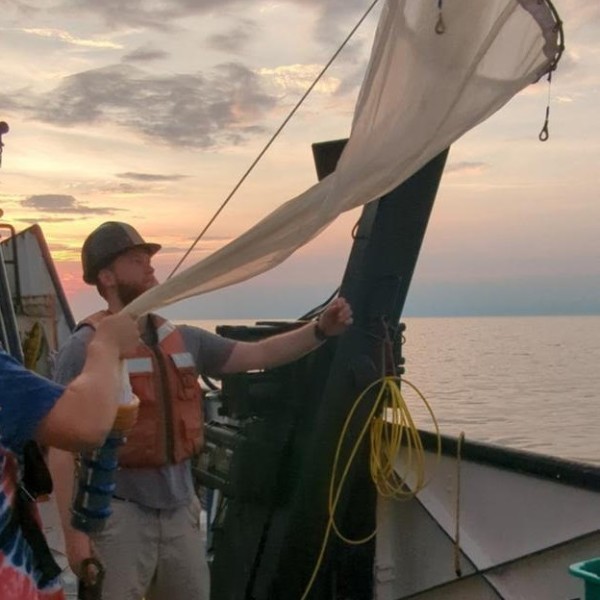The results are synthesized in 10 new research papers – authored by 77 scientists, researchers and librarians in 23 countries – as part of Ceres2030: Sustainable Solutions to End Hunger. The project is headquartered at Cornell, with partners from the International Food Policy Research Institute (IFPRI) and the International Institute for Sustainable Development (IISD).
The papers were published concurrently on Oct. 12 in four journals – Nature Plants, Nature Sustainability, Nature Machine Intelligence and Nature Food – and assembled in a comprehensive package online: Sustainable Solutions to End Hunger.
Ceres2030 employed machine learning, librarian savvy and research synthesis methods to quickly scan a trove of thousands of scientific journals for ideas and websites from more than 60 agencies that can help eradicate world hunger.
“We’re all bombarded with new research information and the question we must be asking is how do we make decisions from all of that information,” said Ceres2030 principal investigator and co-director Jaron Porciello, associate director for research data engagement in the Department of Global Development, in the College of Agriculture and Life Sciences (CALS).
“Moreover,” Porciello said, “we are synthesizing this scientific information to make it useful for an audience – like policymakers – that needs science to make decisions.”
The United Nations’ Sustainable Development Goal No. 2, known as SDG2, calls for ridding the world of hunger by 2030. Currently, more than 690 million people – about 8.9% of the world’s population – are food-insecure, according to the United Nation’s Food and Agriculture Organization (FAO). Due to the COVID-19 pandemic, that global statistic could easily rise by 10 million people a year from now, and by nearly 60 million people in five years.
If recent trends continue, the number of people around the world affected by hunger would surpass 840 million by 2030, according to the FAO.
Ideas from the array of papers published in the respective Nature publications can be implemented instantly.
Around the world, for example, small-scale farmers are rooted in their agricultural ways, often holding on to traditional farming methods that may impair their own food security and livelihoods.
In an evidence-synthesis study about small-scale producers in low-and middle-income countries in Nature Plants, Cornell researchers found that a key to adopting drought-tolerant crops was people – extension experts teaching farmers ways to move forward.
Researchers and librarians reviewed more than 200 journal articles that revealed how extension and education helped small-scale farmers adopt climate resilient crops to achieve steady production, even in the face of climate change, said Maricelis Acevedo, senior research associate in the Department of Global Development.
“How do we make sure that technologies that we develop based on science can have a positive impact on a farmer’s livelihood?” Acevedo said. “We can do all the science, but if we don’t communicate effectively with farmers, they won’t get the right information.”
Acevedo worked on the study with Cornell colleagues Hale Tufan, senior extension associate in global development; Kate Ghezzi-Kopel, evidence synthesis librarian at Mann Library; and Porciello.
Reviewing scientific literature can reveal knowledge gaps. In the evidence-synthesis paper about feed interventions and the livelihoods of small-scale livestock keepers in Africa, Asia and Latin America, in Nature Plants, nearly 23,000 papers were identified by human expertise and artificial intelligence. Only 73 of them were included in the final analysis, and just six reported evidence of adopting new livestock feed methods.
The authors, including Debbie Cherney, professor of animal science, and Erin Eldermire, head of Cornell's Flower-Sprecher Veterinary Library, at Cornell’s College of Veterinary Medicine, found that while many papers examined the technical aspects of a livestock feed supply, they rarely accounted for nutrition.
Cornell researchers’ work on accelerating evidence-informed decision-making for the United Nations’ Sustainable Development Goals using machine learning in Nature Machine Intelligence, describes how Porciello group developed Persephone, the machine-learning model they used for the gargantuan task of reviewing research. Joining Porciello on the paper were graduate student Maidul Islam ‘21; Stefan Einarson, director of information technology in the Department of Global Development; and Haym Hirsh, professor of computer science.
In a review of the contributions of farmers’ organizations to smallholder agriculture, in Nature Food, Ghezzi-Kopel and other authors said formal farmer groups not only provided needed structure to market produce, but encouraged natural resource management, improved food security and helped the environment.
Magdalena Skipper, editor-in-chief of Nature, will present the entire package of Ceres2030 papers to Gerd Müller, Germany’s Federal Minister of Economic Cooperation and Development, at the online event, “A World Without Hunger is Possible – What Must Be Done,” Oct. 13 at 4 a.m. EDT. The program will include remarks by billionaire philanthropist Bill Gates, chair of the Bill & Melinda Gates Foundation.
The prospects for the reaching the United Nations’ anti-hunger goal is promising, Porciello said.
“We’re trying something new that hasn't been done before,” she said. “We know the tools weren’t there, the methods weren’t there and the teams weren’t in place. Now, we’ve created some staircases to make science and world reality connect a little bit more. This approach could be replicated to build a scientific evidence base for many of the world’s most complex policy problems”
Acevedo, Porciello and Tufan are faculty fellows at the Cornell Atkinson Center for a Sustainable Future.
Header image: Small-scale farmers harvest eggplant from their fields in Bangladesh in 2018. Photo by Arif Hossain.
A version of this story also appeared in the Cornell Chronicle.






